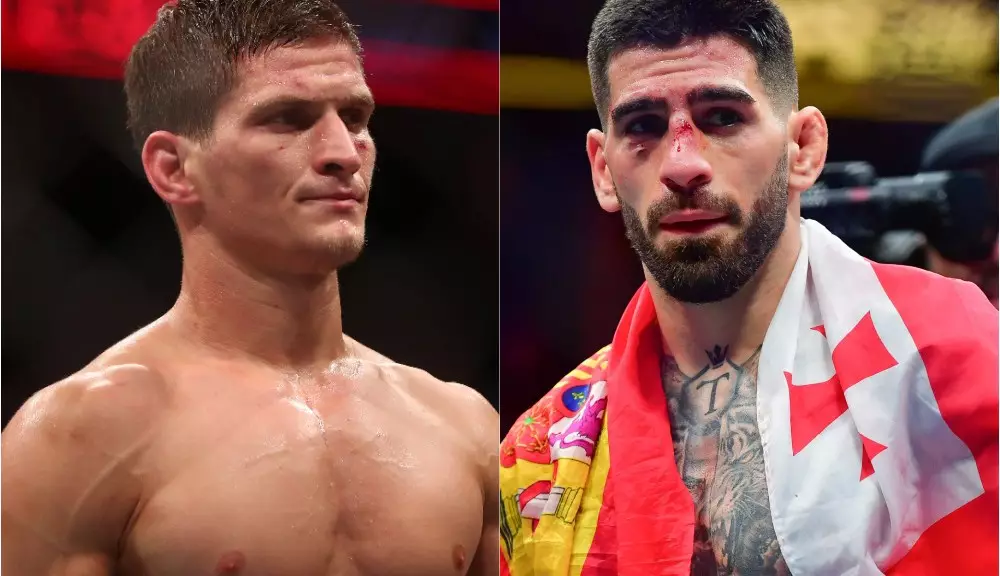In the high-stakes world of the UFC, title shots are not just coveted but fiercely contested. Ilia Topuria, the reigning featherweight champion, has made waves recently by publicly questioning Movsar Evloev’s right to challenge for the title, even after Evloev’s latest victory over former champion Aljamain Sterling. Despite Evloev’s undefeated record and impressive grappling skills, Topuria argues that his inability to secure fight finishes significantly hampers his title candidacy.
Movsar Evloev boasts an unblemished record of 19-0 in professional MMA, with a commendable 9-0 standing in the UFC. His latest performance, a decision win against a fighter of Sterling’s caliber, certainly adds to his credentials. However, Topuria’s critique centers around the nature of Evloev’s victories. With eight of his nine UFC wins coming via decision—often in closely contested bouts—Topuria emphasizes a pivotal point: the importance of finishing fights, especially at the championship level.
In discussions surrounding a title shot, the ability to finish fights often acts as a litmus test for potential challengers. High-energy, action-oriented bouts tend to draw in fans and elevate a fighter’s profile. Topuria’s insistence that Evloev must “do something relevant” to earn a title challenge points to this notion that mere wins on the record may not suffice without fans’ excitement in the mix.
Topuria goes on to elevate Diego Lopes as a more deserving contender than Evloev. With a professional record of 26-6 and a recent surge in performance, Lopes has demonstrated a flair for finishing fights, contrasting sharply with Evloev’s decision-heavy style. Topuria’s preference highlights a crucial dynamic in the sport. It’s not only about winning; it’s also about captivating audiences and ensuring that fighters engage in entertaining bouts.
For Topuria, fighting isn’t merely a job—it’s an endeavor to entertain. He emphasizes a need for a “good dance partner,” someone who will bring intensity and excitement to the octagon. This raises a fundamental question within the UFC landscape: Should a fighter be lauded solely for winning, or is there a moral obligation to enthrall the fans?
Looking ahead, Topuria has lofty ambitions beyond the featherweight division. He expressed interest in challenging current lightweight champion Islam Makhachev, signaling his aspirations to test himself against the elite across weight classes. However, should he decide to remain at featherweight for his next bout, a rematch with Alexander Volkanovski looms as a significant possibility. This potential clash not only serves as a testament to his prowess as a champion but also reinforces the narrative that fighters are continually reshaping the competitive landscape based on their performances.
The discourse between Topuria and Evloev underscores a deeper philosophy about what it means to be a title contender in the UFC. While winning remains paramount, the call for excitement and the art of finishing fights cannot be overlooked. Topuria’s perspective invites a broader reflection on the attributes that define a champion and the qualities fans seek when cheering for their fighters. As the featherweight division continues to evolve, discussions like these will play a pivotal role in shaping the narratives that captivate audiences around the globe.

